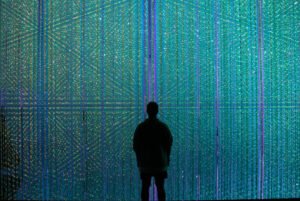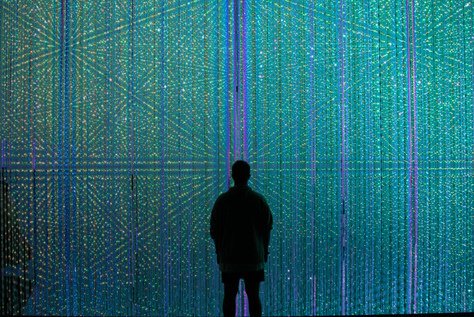In every era, humanity has witnessed breakthroughs that reshaped society. From the wheel to the steam engine, from electricity to the internet, human progress has been defined by the ability to create and adapt. Yet, the 21st century stands apart. Technology is no longer just a tool we use; it is becoming an extension of our daily existence. Artificial intelligence, renewable energy, biotechnology, blockchain, and space exploration are leading us into a new frontier. Within this dynamic era, an odd but symbolic term—cflop-y44551/300—could be imagined as a marker of complexity and uniqueness, reflecting the intertwining of human creativity with machine logic.
This article explores the sweeping changes brought about by digital innovation, highlighting its role in commerce, communication, health, education, environment, and even our sense of identity.
The Digital Backbone: From Data to Decisions

Data as the New Oil
We live in a world where data flows more freely than rivers. Social media clicks, online purchases, GPS tracking, health records, and smart devices all feed into colossal databases. This raw information, once considered noise, is now fuel for decision-making. Corporations analyze consumer preferences, governments predict economic trends, and scientists simulate climate patterns—all powered by data.
Artificial Intelligence and Machine Learning
AI takes this raw material and transforms it into meaningful action. Machine learning algorithms can forecast disease outbreaks, recommend personalized content, and even predict stock market fluctuations. What’s remarkable is not just the intelligence itself, but its adaptability. An AI program today can learn to play chess, drive a car, diagnose a tumor, and compose music. This multi-dimensional intelligence blurs the line between human and machine capability.
Here enters the symbolic cflop-y44551/300, a term that could easily belong to a futuristic AI system identifier—unique, coded, and oddly humanized through its mysterious form. It reminds us that behind every line of code is human imagination.
The Business Revolution
E-Commerce and Global Markets
Gone are the days when businesses were confined to local markets. A teenager in Pakistan can sell hand-painted mugs to a customer in Canada through digital platforms. Giants like Amazon, Alibaba, and eBay have democratized trade, but beyond them, niche online stores thrive too. Small businesses now harness digital marketing, SEO, and influencer collaborations to carve global identities.
Cryptocurrency and Financial Innovation
Finance has seen one of the greatest upheavals. Bitcoin was once dismissed as a fad; today, blockchain technology underpins secure transactions, supply chain tracking, and smart contracts. Central banks are experimenting with digital currencies, while fintech startups disrupt traditional banking models. The future of money is not just digital—it is decentralized, transparent, and accessible.
Communication in the Instant Age
Social Media as a Mirror
Platforms like Instagram, TikTok, Twitter, and Facebook serve as windows into culture, politics, and personal lives. They amplify voices that once went unheard. Yet, they also create echo chambers, where misinformation spreads rapidly. The challenge now is balance—using these tools for empowerment rather than division.
The Rise of Virtual Communities
Humans no longer gather only in villages, towns, or workplaces. They gather in forums, gaming platforms, and digital spaces. Whether it’s a professional network like LinkedIn or a virtual world like the Metaverse, communities are forming beyond physical boundaries. These digital tribes reshape identity, belonging, and even politics.
Health and Biotechnology
Telemedicine and Digital Health
The COVID-19 pandemic accelerated telemedicine adoption. Video consultations, digital prescriptions, and AI-based symptom checkers became the norm. Wearable devices now monitor heart rate, blood oxygen, and sleep cycles, giving patients real-time control over their health.
Biotechnology and Gene Editing
CRISPR technology allows scientists to edit genes with unprecedented precision. Imagine curing inherited diseases or engineering crops resistant to drought. While the promise is immense, so too are ethical concerns. Should we alter human DNA to eliminate flaws? What does it mean to be “natural” in an age where biology itself can be rewritten?
Education in the Digital Classroom
Online Learning Platforms
Education no longer depends on brick-and-mortar classrooms. Platforms like Coursera, Udemy, and Khan Academy offer global learning at fingertips. Students in remote villages can access Ivy League lectures, provided they have an internet connection.
Gamification and AI Tutors
Gamification transforms learning into an engaging process. Points, rewards, and simulations make subjects more interactive. Meanwhile, AI tutors can personalize lessons based on each student’s pace and style. A struggling student receives more practice, while an advanced one gets challenges tailored to growth.
Environmental Innovation
Renewable Energy
Solar panels, wind turbines, and hydroelectric plants are no longer experimental—they are mainstream. Countries invest heavily in renewable infrastructure to reduce dependence on fossil fuels.
Smart Cities and Green Tech
Urban centers are evolving into smart cities where sensors regulate traffic, optimize energy use, and monitor pollution. Green technologies like vertical farming, water recycling, and biodegradable packaging signal a commitment to sustainable living.
Human Identity in a Digital World
The Blurring of Real and Virtual
We now live dual lives—offline and online. Avatars, usernames, and digital footprints become part of our identity. A person may be shy in real life yet bold on Twitter. Another may struggle socially but thrive in gaming communities.
Ethical Dilemmas
Who owns our data? Should robots have rights? How much screen time is too much for children? These are not futuristic questions—they are today’s pressing ethical challenges.
Space and the New Frontier
Private Companies in Space
Space was once the domain of nations; today, private companies like SpaceX and Blue Origin compete in launching rockets, satellites, and even tourists. Mars colonization is no longer science fiction—it is a serious, if distant, plan.
Satellite Networks and Global Internet
Constellations of satellites orbit the Earth, providing internet to remote regions. This universal access has the potential to reduce inequality by connecting billions of previously disconnected people.
The Role of Creativity
While machines excel in speed and accuracy, creativity remains a uniquely human domain—or so we thought. AI can now generate art, write poetry, and compose music. But the heart behind creativity—the ability to connect emotion, culture, and imagination—still belongs to humans. Perhaps this is where terms like cflop-y44551/300 symbolize our creative randomness, something algorithms may never fully replicate.
Challenges Ahead
Privacy Concerns – With every device collecting data, how secure is our personal information?
Digital Divide – Billions still lack internet access, creating inequality.
Job Displacement – Automation may eliminate jobs faster than new ones are created.
Mental Health – Social media and digital overload impact psychological well-being.
Ethical AI – Ensuring AI is fair, unbiased, and accountable remains crucial.
The Road Forward
The future is not predetermined; it is built. By combining innovation with responsibility, humanity can shape a digital age that enhances, rather than diminishes, our humanity. Governments must regulate wisely, businesses must innovate ethically, and individuals must adopt consciously.
Conclusion
The age of digital evolution is not coming—it is here. From the phone in your pocket to the satellites in orbit, technology permeates every layer of existence. Humanity stands at a crossroads: either harness these tools for progress or let them control us.
In this grand narrative, even an unusual sequence like cflop-y44551/300 carries meaning. It symbolizes the intersection of randomness, creativity, and coded precision—exactly where humanity and technology meet.
The future will not be defined solely by machines, but by the choices we make as humans in guiding their growth. And in that journey, one truth stands: innovation is not just about creating new tools, but about reimagining what it means to live, connect, and dream.
